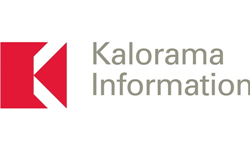
ARLINGTON, Va. (PRWEB)
July 13, 2020
Molecular diagnostics can be useful in the diagnosis of tuberculosis (TB). The disease is one of the top 10 causes of death worldwide, and molecular’s diagnostic accuracy can assist in ensuring that patients are properly treated and isolated. The field has increased in competitors, as molecular diagnostic systems replace immunoassays.
According to WHO statistics, 10 million people fell ill with TB in 2017 and 1.6 million died from the disease. HIV positive people are susceptible to TB, which is a leading cause of death among them. Multi drug-resistant (MDR) TB is major crisis and as per WHO estimates, 558,000 new TB cases are resistant to rifampicin, the most effective first-line drug and 82% of these patients had MDR-TB. However, TB incidence is falling at a rate of 2% per annum. Around 54 million lives were saved through TB diagnosis and treatment between 2000 and 2017.
COVID-19 has to some degree affected diagnosis and treatment of all other diseases, and tuberculosis is no exception. While experience on COVID-19 infection in tuberculosis (TB) patients remains limited, it is anticipated that people ill with both TB and COVID-19 may have poorer treatment outcomes, especially if TB treatment is interrupted. Older age, diabetes and chronic obstructive pulmonary disease (COPD) are linked with more severe COVID-19 and are also risk factors for poor outcomes in TB. COVID-19 transmission has primarily been attributed to the direct breathing of droplets expelled by someone with COVID-19.
The key player in the market is Cepheid’s GeneXpert system and its Xpert MTB/RIF assay for the detection of TB and rifampicin resistance in sputum samples. The use of this rapid test has expanded across the world substantially since 2010 after WHO recommended its use. The test simultaneously detects TB and resistance to rifampicin, the most important TB medicine. Diagnosis can be made within 2 hours and the test is recommended by WHO as the initial diagnostic test in all persons with signs and symptoms of TB.
There are competitors. May 2019 Roche announced the CE-IVD marking of its Cobas MTB-RIF/INH test that detects mutations associated with resistance to the antibiotics rifampicin and isoniazid within tuberculosis DNA. The assay is part of Roche’s mycobacteria test menu that runs on its Cobas 6800/8800 automated molecular platforms and also includes the Cobas MTB and Cobas MAI tests. In 2019, Roche announced that it would increase its Global Access Program beyond HIV diagnostics. The program is a partnership with national governments, local healthcare facilities, communities and international agencies to establish programs and increased access to diagnostics at affordable pricing for qualifying organizations in eligible countries with the highest disease burden.
Another competitor is Qiagen. February 2020, Qiagen announced that its QuantiFeron-TB Gold Plus (QFT-Plus) blood test for detecting latent tuberculosis (TB) has been recommended in national screening guidelines from Nigeria’s health ministry. Nigeria is the first high-burden country to exclusively embrace interferon gamma release assays (IGRAs) for latent TB screening of at-risk individuals in tuberculosis control programs, Qiagen noted. The national guidelines are based on World Health Organization (WHO) recommendations for screening, and including IGRA tests will help avoid progression to active TB,
Tuberculosis molecular testing will be covered in Kalorama Information’s upcoming report on the topic. Kalorama Information publishes market studies at http://www.kaloramainformation.com.
Share article on social media or email:

